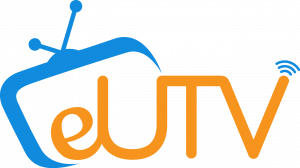Live Streaming
Streaming television (or streaming TV) also known as IPTV is the digital distribution of television content, such as TV shows, as streaming video delivered over the Internet. Streaming TV stands in contrast to dedicated terrestrial television delivered by over-the-air aerial systems, cable television, and/or satellite television systems. Experts agree, that “Live TV Streaming” is the future of television entertainment. IPTV delivers television content using signals based on the Internet protocol (IP), through the open, unmanaged Internet with the “last-mile” telecom company acting only as the Internet service provider (ISP). As described above, “Internet television” is “over-the-top technology” (OTT). Both IPTV and OTT use the Internet protocol over a packet-switched network to transmit data, but IPTV operates in a closed system—a dedicated, managed network controlled by the local cable, satellite, telephone, or fiber-optic company.[19] In its simplest form, IPTV simply replaces traditional circuit switched analog or digital television channels with digital channels which happen to use packet-switched transmission. In both the old and new systems, subscribers have set-top boxes or other customer-premises equipment that communicates directly over company-owned or dedicated leased lines with central-office servers. Packets never travel over the public Internet, so the television provider can guarantee enough local bandwidth for each customer’s needs.
The Internet protocol is a cheap, standardized way to enable two-way communication and simultaneously provide different data (e.g., TV-show files, email, Web browsing) to different customers. This supports DVR-like features for time shifting television: for example, to catch up on a TV show that was broadcast hours or days ago, or to replay the current TV show from its beginning. It also supports video on demand—browsing a catalog of videos (such as movies or television shows) which might be unrelated to the company’s scheduled broadcasts.
